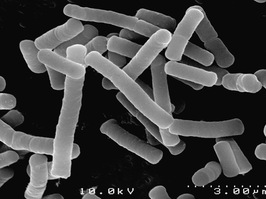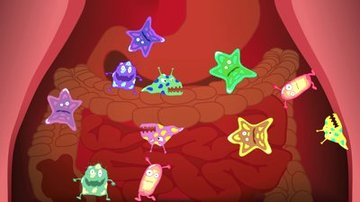Helpful Bacteria?
Despite the common perception of bacteria being generally harmful and dangerous, bacteria are for the most part harmless to humans. There are some that are in fact very beneficial to human health as well. Without bacteria we would not survive. We house millions of bacteria on our skin and in our nose, mouth, and gut.
- They help us digest our food, produce vitamins, and occupy niches that would otherwise be available for competing pathogens.
- We rely on bacteria for the preparation of many healthy types of food and beverages, such as yogourt, cheese and other fermented milk products, fermented vegetables, and even coffee and cacao beans.
- We depend on bacteria to help us make medicines like insulin, growth hormones and antibiotics.
- Ecological systems rely on bacteria to decompose dead materials, recycling nutrients and fixing nitrogen back into the Earth's soil.
- Some bacteria act as purifiers that remove waste products and poisons from water, can be used in sewage treatment plants.


